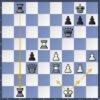The roar of the engines, the blur of speed, and the strategic chess match – Formula 1 offers a spectacle unlike any other. Yet, sometimes, it`s the subtle moments, the human interactions under immense pressure, that truly capture the essence of the sport. The recent Azerbaijan Grand Prix provided just such a moment, centered around Lewis Hamilton, Charles Leclerc, and a team order that didn`t quite land, leaving a seven-time world champion with a public apology on his lips.
The Strategic Gambit in Baku
Towards the tail end of what was, by all accounts, an underwhelming weekend for the Scuderia Ferrari, a strategic call was made. Charles Leclerc, known for his blistering pace and unwavering commitment, gracefully yielded his eighth position to Lewis Hamilton. The logic was clear: Hamilton, on fresher tires, was tasked with a daring pursuit of the cars ahead, hoping to snatch a few extra championship points for the team. The understanding, a silent agreement echoing through the paddock, was that if this offensive proved fruitless, Hamilton would return the position to Leclerc before crossing the finish line.
A Champion`s Focus vs. The Radio Call
As the final laps unfolded on the unforgiving streets of Baku, Hamilton pushed. He chased, he hoped, he perhaps even imagined a miraculous overtake, despite conceding later there was “0.0001% chance of passing.” It was in this hyper-focused, adrenaline-fueled state that the instruction to swap back positions arrived. But, as Hamilton himself explained, “I got the message really late on, and I was like zoned in on the car in front of me.”
The checkered flag waved, and Hamilton crossed it in eighth, with Leclerc directly behind in ninth. The swap, intended to be a seamless piece of team strategy, was botched. It wasn`t a malicious act, nor a blatant disregard for authority, but rather a testament to the sheer tunnel vision required to operate at the pinnacle of motorsport. In that microsecond of decision-making, the instinct to race, to gain, to push, momentarily overshadowed the directive.
The Apology: A Glimmer of Sportsmanship
Immediately after the race, the incident became a talking point. Hamilton, ever the professional, wasted no time in addressing the oversight. His public statement was clear and direct: he would apologize to Leclerc. This act, while seemingly minor, speaks volumes about the ethos of Formula 1. Despite the fierce competition, there’s an unspoken code, especially within a team. Leclerc had extended a professional courtesy, and Hamilton, recognizing the deviation from the agreed plan, felt the weight of that unfulfilled expectation.
“Firstly…obviously I was quicker [in that moment of the race] but Charles was gracious to let me by. At the end I got the message really late on, and I was like zoned in on the car in front of me, even though there was like 0.0001% chance of passing, I was still hopeful maybe,” Hamilton articulated, offering a candid glimpse into the mind of a racer at the edge.
Ferrari`s Enduring Dilemma: A Precursor to 2025?
This episode, though small in isolation, carries a significant subtext, particularly for Ferrari. The team`s overall performance in Azerbaijan was described as “underwhelming,” a sentiment that this particular misstep only amplified. Ferrari, a team synonymous with racing legends and passionate Tifosi, has often grappled with the delicate balance of managing two highly competitive drivers. With Hamilton set to join Leclerc at Ferrari in 2025, this minor incident serves as an intriguing, perhaps slightly ironic, precursor to the complex driver dynamics that await. How will the team manage two alpha drivers, both chasing a world championship, when even simple position swaps prove challenging in the heat of battle?
It`s a reminder that Formula 1 is not just about raw speed and engineering marvels. It`s a high-stakes psychological game, where human errors, split-second decisions, and the subtle nuances of team cohesion can alter the course of a race, a season, and even a legacy. Hamilton`s apology isn`t just about a missed position; it`s about acknowledging the intricate web of trust and strategy that underpins every F1 operation, and the enduring challenge of keeping all the pistons firing in perfect harmony, even when a champion`s instinct takes over.
The Human Factor in the Machine Age
In a sport dominated by terabytes of data, advanced aerodynamics, and hybrid power units, it`s easy to forget the human element. Yet, moments like these vividly remind us that behind every steering wheel is a person navigating not only a high-speed machine but also a torrent of information, instinct, and expectation. The Azerbaijan position swap incident, quickly resolved by an honest admission, offers a fascinating insight into this eternal struggle: the precise, calculated world of F1 strategy colliding with the primal, unyielding will of a driver to push beyond the limits.











